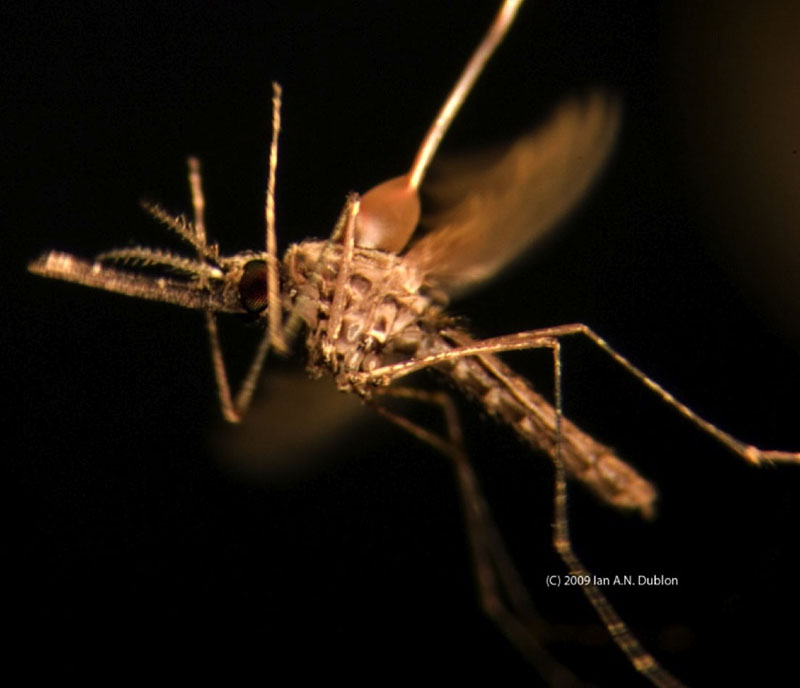Monday August 20th is World Mosquito Day, celebrating the discovery of the role mosquitoes play in malaria transmission. On this day in 1897, Sir Ronald Ross made a breakthrough that would later earn him a Nobel prize in medicine when he found malaria parasites within dissected mosquitoes of the genus Anopheles. By identifying how the disease was spread from person to person, Ross opened the way for the possibility of reducing the risk of infection by controlling the mosquito vector.
Since his breakthrough, vector control strategies have made a significant impact on lessening the burden of malaria. The last decade in particular has seen a concerted international effort to reduce the disease through mosquito control, with 150 million long-lasting insecticidal nets distributed in sub-Saharan Africa. Alongside improved availability of testing and new treatments, such as the anti-malarial drug artemesinin, these strategies have led to a 33% reduction in the region's malaria mortality rates.
Despite these successes, more than half the world's population is still at risk of malaria and the World Health Organisation estimates that in 2010 there were over 600,000 malaria deaths in sub-Saharan Africa, mainly of children under five.
The Natural Resources Institute (NRI) continues to work alongside its research partners, in the UK and Africa, to develop our understanding of mosquitoes and other disease vectors, including tsetse flies which spread sleeping sickness in humans and trypanosomiasis in animals. Working as part of a multi-disciplinary team of sensory physiologists and behaviourists, Dr Gabriella Gibson says "By characterising their sensory control of behaviour, we are building a picture of what mosquitoes do and how exactly they do it, so that these behaviours can be exploited to control mosquito populations, an approach we have used to reveal for the first time that malarial mosquitoes use auditory communication to ensure species-specific mating." See Pennetier et al 2010 for more information.
It should not be forgotten that other mosquito species are also capable of transferring diseases including yellow fever, filariasis worms and dengue fever.
"World Mosquito Day is a chance to reflect on the successes of mosquito control to date, while refocusing our efforts on stopping the spread of all mosquito-borne illnesses." says post-graduate student Frances Hawkes. "Mosquitoes are highly adaptable and can develop resistance to insecticides, so it is crucial to stay a step ahead by continuing to further our understanding of their behaviour, ecology and epidemiological role."


